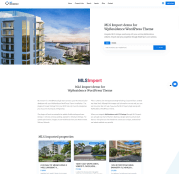Multiple Listing Services (MLS) have become an integral part of the real estate industry, providing a platform for agents and brokers to share information about properties available for sale or lease. In Texas, the MLS system is operated by the Texas Real Estate Commission (TREC) and is known as the Texas Real Estate Information System (TREIS).
How do I access MLS in Texas?
To access an MLS system in Texas, you must first become a licensed real estate agent or broker. Once you have obtained your license, you will need to become a local real estate board member or association participating in the TREIS.
You also need to be aware that each local real estate board or association has its requirements for membership, so you will need to check with the specific organization you are interested in joining to see what is required. Also, in most cases, you must pay a membership fee and may be required to take additional classes or training.
Once you become a member of a local real estate board or association participating in the TREIS, you can access an MLS system. This can typically be done through a website or a software program the local council or association provides.
What are the MLSs based in Texas?
Here are the most known MLS systems based in Texas :
- Austin Board of Realtors MLS – The Austin Board of Realtors (ABoR) is a professional organization serving the real estate industry in Austin, Texas. Founded in 1918, ABoR has a long history of supporting and promoting the interests of real estate professionals in the Austin area. To learn how to create a real estate website with the Austin Board of Realtors, check out this article: Create a real estate website with Austin Board of Realtors.
- Houston Association of Realtors MLS – This MLS serves the Houston area and is run by the Houston Association of REALTORS®, the top REALTOR® association website that caters to consumers in the US.
- San Antonio Board of Realtors MLS –The San Antonio Board of REALTORS® is your primary resource when it comes to finding a realtor and buying and selling in San Antonio and the surrounding area. We are the largest professional trade organization in San Antonio and represent over 15,000 members. SABOR’s jurisdiction covers Atascosa, Bexar, Frio, Karnes, Kendall, La Salle, McMullen, Medina, Uvalde, and Wilson counties.
- North Texas Real Estate Information Systems (NTREIS) – For buying and selling in San Antonio and nearby areas, the San Antonio Board of REALTORS® is your go-to source. As the largest professional trade group in San Antonio, it represents over 15,000 members across 10 counties, including Atascosa, Bexar, Frio, Karnes, Kendall, La Salle, McMullen, Medina, Uvalde, and Wilson.
- Fort Worth Board of Realtors (FWBR) – Founded in 1918, the Greater Fort Worth Association of REALTORS has been a leader in representing the real estate industry in the Greater Fort Worth region for over 100 years. Our membership of over 4,000 REALTORS and affiliates is committed to promoting private property rights, fair housing, and ethical standards within the industry.
- Central Texas Multiple Listing Service (CTXMLS) – The CTXMLS covers the Central Texas area and is operated by the Central Texas Multiple Listing Service. Central Texas MLS was created by the joint efforts of five REALTOR associations: Fort Hood Area Association of REALTORS, Four Rivers Association of REALTORS, Williamson County Association of REALTORS, Temple-Belton Association of REALTORS, and Victoria Area Association of REALTORS. Starting from February 2023, you can use Central Texas Multiple Listing Service with MLSimport.com.
- The MLS of the Greater El Paso Association of Realtors ( GEPAR MLS ) covers a vast geographical area, including multiple cities and counties. While its main focus is on the city of El Paso, it also extends its reach to encompass surrounding municipalities such as Horizon City, Socorro, Canutillo, and Anthony, among others. This comprehensive coverage ensures a wide range of real estate opportunities within the Greater El Paso area. You can also integrate this MLS into your website – find out more: Leveraging Greater El Paso Association of Realtors MLS and MlsImport for Your Real Estate Website
These are only a few examples of the many MLS systems based in Texas, and there may be others depending on the area you are interested in. It’s always good to check with local real estate boards or associations to see which MLS they participate in.
You need to be aware that not all properties are listed on the MLS system; some are off-market or pocket listings, so it’s always good to have a good relationship with agents in the area you are looking to buy or sell.
What are the service fees for joining an MLS in Texas?
The service fees vary depending on the MLS and the service level provided. Some MLS providers in Texas charge a flat annual fee for access to their system, while others charge a monthly or quarterly fee.
Most of them generally charge a fee for access to their system and additional fees for services such as enhanced listings or other data feeds. Some also charge a transaction fee for each property sold through their system.
Another typical fee is the Listing Fee: a fee paid by the seller or the listing agent to the MLS service provider to list a property in their database. This fee is usually a percentage of the property’s sale price, and it can vary depending on the size and location of the property.
It’s also important to note that some MLS providers have different fee structures for residential and commercial listings.
To know the specific fees for a particular MLS in Texas, it would be best to contact the provider directly or check their website for the most current fee schedule.
How do you build a website with properties from an MLS in Texas?
- Research and select your MLS provider: In Texas, there are several MLS providers that you can choose from – see the list above. Research the different providers and select the one that best serves your area and meets your needs.
- Obtain a license: Most MLS providers require that you have a real estate license to access their system. If you do not have a license, you will need to obtain one to access the MLS data.
- Sign up for an account: Once you have a license, you can sign up with your chosen MLS provider. You will be required to provide some basic information and agree to the terms and conditions of the provider.
- Configure your settings: After you have signed up for an account, you will need to configure your settings. This typically involves specifying the types of properties you want to display on your website, the search criteria you wish to use, and the layout and design of your website.
- Customize your website: Once your settings are configured, you can begin building your website. You can use a website builder or a developer to create a professional-looking one. You should also add your logo branding and customize your website’s layout and design. See how to integrate WpResidence WordPress Theme with IDX / RESO, use Houzez WordPress Theme with MLS, or import MLS into Real Homes Theme.
- Import your listings with mlsimport.com: Once your website is set up, you can import your listings from your selected MLS provider. You can access the data feed from the provider, so you don’t need to upload them manually.
It’s important to note that building a real estate MLS website will require a significant investment in time and resources, including a developer or website builder, an IDX/ MLS plugin, hosting, and marketing. However, having a website with MLS listings (from Texas or other states you practice in) can be a great way to attract more clients and grow your business in the real estate industry.
Special Consideration before joining a Texas MLS
Several distinct aspects of MLS (Multiple Listing Services) in Texas set it apart from MLS systems in other states. These differences can be attributed to Texas’ unique real estate market, state laws, and regional preferences. Here are a few ways in which MLS in Texas might differ from other states:
Size and Diversity
Texas is a massive state with diverse urban, suburban, and rural areas. MLS systems in Texas cover a wide spectrum of markets, from bustling cities like Houston and Dallas to serene rural communities.
No State Income Tax
Texas has no state income tax, impacting property values, tax considerations, and financial planning. MLS listings in Texas might include information about property taxes and how they compare to other states.
Oil and Gas Interests
Given Texas’ role in the energy sector, MLS listings might include details about mineral rights, oil leases, and other considerations related to oil and gas interests.
Land and Acreage Listings
Texas has vast areas of rural land, ranches, and agricultural properties. MLS systems in Texas often include specialized categories for land and acreage, reflecting the state’s agricultural and ranching heritage.
Spanish Language
With a significant Spanish-speaking population, some MLS listings and resources might be available in English and Spanish to cater to a diverse audience.
Property Types
Texas is known for its wide range of property types, from traditional single-family homes to unique properties like ranches, historic homes, and waterfront estates.
Climate Considerations
The diverse climate across Texas, ranging from coastal regions to desert areas, might influence property preferences and amenities. MLS listings could highlight climate-related features.
Legal Structure
Real estate laws and practices can vary widely from state to state. MLS in Texas would reflect the state’s specific legal requirements and disclosure regulations.
Housing Demand
The booming population in Texas, driven by job opportunities and affordability, can result in high demand for housing. MLS systems might need to accommodate fast-paced markets.
Association and Condo Information
In urban areas like Houston and Dallas, condos and homeowners associations are common. MLS listings could include information about condo fees and association rules.
Table of Contents





